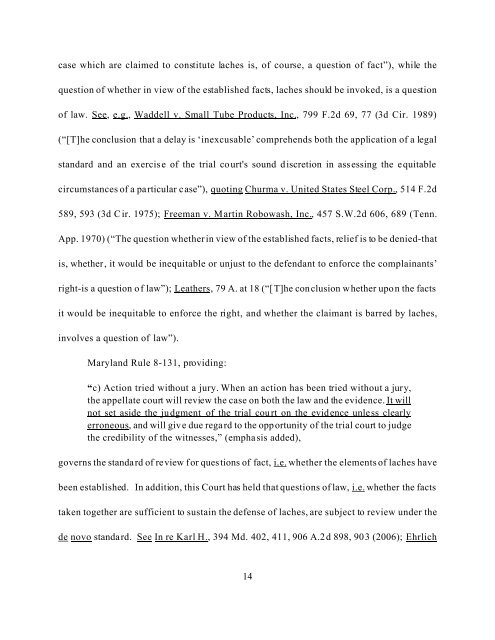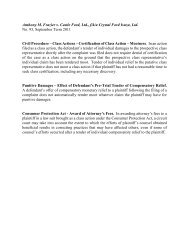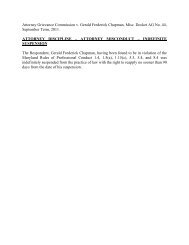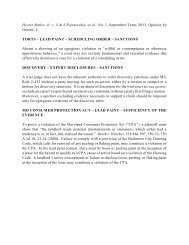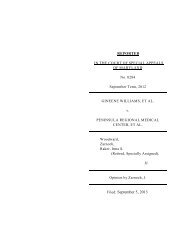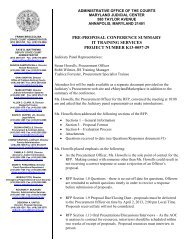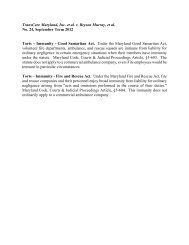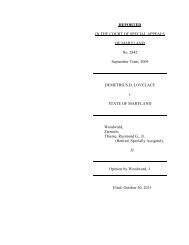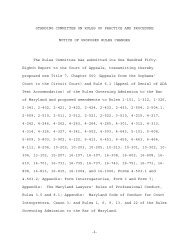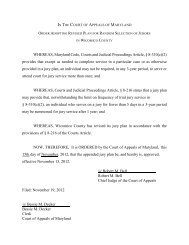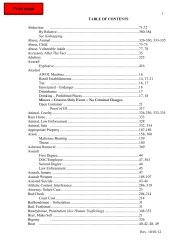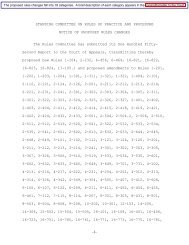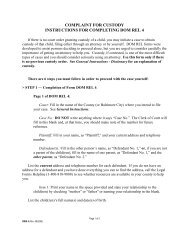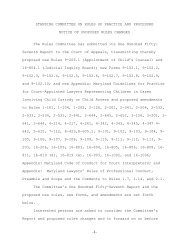Liddy v. Lamone - Maryland state court system
Liddy v. Lamone - Maryland state court system
Liddy v. Lamone - Maryland state court system
You also want an ePaper? Increase the reach of your titles
YUMPU automatically turns print PDFs into web optimized ePapers that Google loves.
case which are claimed to constitute laches is, of course, a question of fact”), while the<br />
question of whether in view of the established facts, laches should be invoked, is a question<br />
of law. See, e.g., Waddell v. Small Tube Products, Inc., 799 F.2d 69, 77 (3d Cir. 1989)<br />
(“[T]he conclusion that a delay is ‘inexcusable’ comprehends both the application of a legal<br />
standard and an exercise of the trial <strong>court</strong>'s sound discretion in assessing the equitable<br />
circumstances of a particular case”), quoting Churma v. United States Steel Corp., 514 F.2d<br />
589, 593 (3d Cir. 1975); Freeman v. Martin Robowash, Inc., 457 S.W.2d 606, 689 (Tenn.<br />
App. 1970) (“The question whether in view of the established facts, relief is to be denied-that<br />
is, whether, it would be inequitable or unjust to the defendant to enforce the complainants’<br />
right-is a question of law”); Leathers, 79 A. at 18 (“[T]he conclusion whether upon the facts<br />
it would be inequitable to enforce the right, and whether the claimant is barred by laches,<br />
involves a question of law”).<br />
<strong>Maryland</strong> Rule 8-131, providing:<br />
“c) Action tried without a jury. When an action has been tried without a jury,<br />
the appellate <strong>court</strong> will review the case on both the law and the evidence. It will<br />
not set aside the judgment of the trial <strong>court</strong> on the evidence unless clearly<br />
erroneous, and will give due regard to the opportunity of the trial <strong>court</strong> to judge<br />
the credibility of the witnesses,” (emphasis added),<br />
governs the standard of review for questions of fact, i.e. whether the elements of laches have<br />
been established. In addition, this Court has held that questions of law, i.e. whether the facts<br />
taken together are sufficient to sustain the defense of laches, are subject to review under the<br />
de novo standard. See In re Karl H., 394 Md. 402, 411, 906 A.2d 898, 903 (2006); Ehrlich<br />
14


